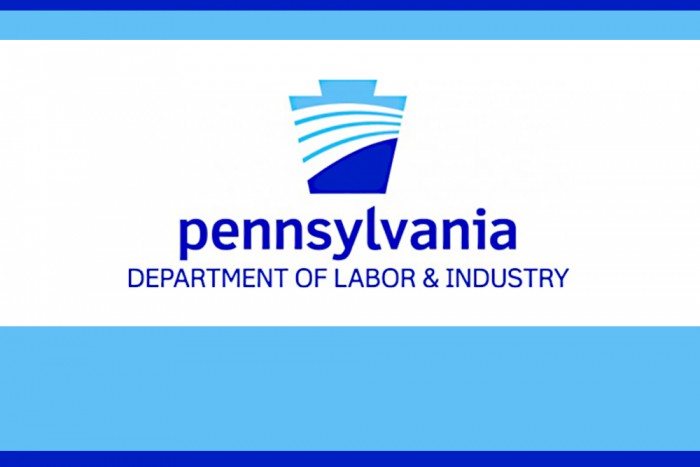ODP: Things to Consider when Supporting an Individual with Deaf-Blindness
On July 1, Secretary of Health Dr. Rachel Levine signed an order requiring universal face coverings. This order has implications for service provision, especially for individuals with deaf-blindness.
Some of the restrictions create barriers to communication and would impede effective supports for deaf-blind individuals. It is essential to remember that the needs of each individual must be considered separately. There will be no one-size-fits-all plan to support someone who is deaf-blind. Guidance can be found on ODP’s Deaf and Hard of Hearing Dashboard.
Ultimately, we need to assure that an individual’s communication, choices, preferences, needs, and understanding of personal risk are balanced with concerns for safety.
Gov. Wolf Signs 12th Renewal of Opioid Disaster Declaration
PA Family Network (PAFN) Presents: Peace of Mind Planning for Siblings
Join PA Family Network for a Discussion on Long-Term Planning
Supporting a loved one with intellectual disabilities and/or autism requires planning and knowledge! What happens if or when others need to take over the care of your loved one? What needs to be in place? What things need to be identified as essential? Learn from other families about how they are handling long- term planning during this two-hour workshop. It is appropriate for both siblings and other caregivers. Join PAFN and meet other siblings! See the attached flier for more information, including registration instructions.
PA Emergency COVID-19 Response Funds FAQ for Funding Distributed by DHS
The Office of Developmental Programs (ODP) has shared information to help providers who received Act 24 funds identify areas of allowable costs prior to November 30. The PA Emergency COVID-19 Response Funds FAQ has been updated as of November 9, 2020.
On May 29, 2020, Governor Wolf signed Act 24 of 2020, which allocates funding from the federal Coronavirus Aid, Relief, and Economic Security Act – also known as the CARES Act – to assist providers with COVID-19 related costs. Act 24 Coronavirus Relief Funds (CRF) can be used to cover necessary COVID-19 related costs that were incurred between March 1, 2020 and November 30, 2020 and that have not been otherwise reimbursed by Federal, State, or other sources of funding.
There are two criteria to determine if a cost is an allowable CRF cost per Act 24 and the US Treasury Guidance:
- The cost was incurred due to the COVID-19 public health emergency (PHE) between March 1 and November 30, 2020; and
- The cost is related to the COVID‐19 PHE.
If both of these criteria are met, and the cost was not included in the entity’s most recently authorized budget as a usual business expense, it is an allowable CRF expense.
Examples of allowable expenses include but are not limited to the following:
- Payroll expenses, including salaries and benefits, hazard pay, and overtime costs of an employee whose time is substantially dedicated to mitigating or responding to the COVID-19 PHE;
- Supplies used to provide health care services for possible or actual COVID-19 patients;
- Equipment used to provide health care services for possible or actual COVID-19 patients;
- Workforce training as it relates to COVID-19;
- Developing and staffing emergency operation centers;
- Reporting COVID-19 test results to federal, state, or local governments;
- Lease or purchase of medical supplies and equipment, personal protective equipment, and COVID-19 testing supplies;
- Reconfiguring an existing facility or constructing temporary structures to expand capacity for COVID-19 patient care or to provide health care services to non-COVID-19 patients in a separate area from where COVID-19 patients are being treated;
- Housekeeping supplies and the disinfection of buildings, public areas, and other facilities used for providing services to consumers;
- Acquiring additional resources, including facilities, equipment, supplies, health care practices, staffing, and technology to expand or preserve care delivery;
- IT related costs such as need hardware and software purchase and telecommuting costs;
- Administrative expenses that represent an increase over previously budgeted amounts and are limited in what is necessary; and
- Revenue losses for non-public entities that are attributable to coronavirus. NOTE: Public entities, such as county nursing facilities, cannot include revenue losses attributable to coronavirus.
The US Treasury Guidance, the Coronavirus Relief Fund FAQs, the Department of Human Services (DHS) Emergency Relief Funds FAQs, and the Act 24 Cost Report Template are good resources for understanding eligible expenses. As a reminder, entities who received Act 24 CRF have until November 30, 2020 to spend their Act 24 CRF. Any unspent Act 24 funds as of November 30, 2020 must be returned to DHS. While costs must generally be incurred by November 30 under Act 24, please reference the US Treasury Guidance section that discusses costs incurred verses funds expended to cover the cost for leased and bulk purchases of supplies, such as personal protective equipment, for additional flexibility.
Please contact Rick Smith if you have questions or concerns.
ODP Announces Revised Timeline for Incident Management Bulletin and EIM System Enhancements
The Office of Developmental Programs (ODP) Announcement 20-107 provides updated issuance and effective dates for the revised Incident Management Bulletin and subsequent changes to the Enterprise Incident Management (EIM) system as a result of the impacts of COVID-19.
At this time, the new issue date is targeted for March 2021 with an effective date of July 2021. Modifications to the EIM system are also being delayed until July 2021.
As the system transitions to comply with the Incident Management sections of 55 Pa. Code Chapter 6100, providers will continue to report and investigate incidents as outlined in the current Incident Management Statement of Policy 55 Pa Code Chapter 6000 Subchapter Q. Effective July 2021, ODP will align: 1-Chapter 6100 Incident Management sections (replacing Chapter 6000 subchapter Q), 2-implementation of the Incident Management Bulletin, and 3-implementation of technology updates to the EIM system.
ODP plans to hold live webinars to explain the new IM Bulletin and to hold a series of trainings prior to the implementation date. This training will meet the requirements specified in the Chapter 6100 regulations, although providers are not required to utilize these trainings to meet this requirement if they choose to train their staff another way. Please see the announcement for the timeline of these activities.

















